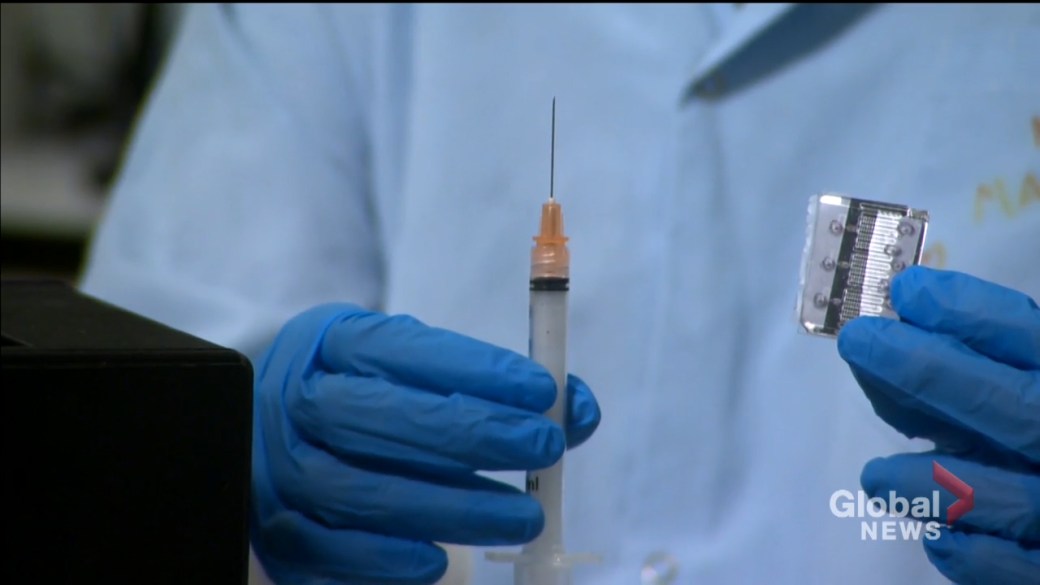Canadians falling prey to conspiracy theories despite strong trust in institutions: poll
The good news is Canadians have a lot of trust in their institutions.

The not-so-good news is that a strong minority of Canadians believe a small cabal of people “secretly manipulate” world events from the shadows.
New polling conducted for Elections Canada suggested that Canadians have strong confidence in institutions like the elections agency (78 per cent), the police (74 per cent), the mainstream media (54 per cent) and provincial and federal governments (56 per cent and 55 per cent, respectively).
And unlike our neighbours to the south, a strong majority of Canadians – 86 per cent – believe in Elections Canada to fairly run federal elections. The overwhelming confidence suggests any movement to cast federal election results as illegitimate – such as the “Stop the Steal” movement in the U.S. – would be a non-starter in Canada.
But the poll – conducted by Leger, and based on a survey of 2,582 adults between April 1 and April 11 – also found that a surprising number of Canadians are willing to believe in conspiracy theories.
Leger asked a series of questions related to the “conspiracy mindset.” The polling company found that two in five Canadians (40 per cent) considered it “definitely” or “probably true” that “certain significant events have been the result of the activity of a small group that secretly manipulates world events.”
“The number is massive and absolutely surprising and worrying,” said Amarnath Amarasingam, a Queen’s University professor who researches extremism and online communities.
“At the same time, though, the problem with these kinds of surveys is that it allows people to read into the questions their own subjective issues.”

For instance, Amarasingam said, it’s not clear what is meant by “significant events” or what “small group” people believe to be influencing world affairs.
“What’s weird about the whole thing is that you might expect the answers in the conspiracy question to point to a collapse in social trust when it comes to key institutions in or society. But that’s not the case here,” Amarasingam noted.
“Over half the survey respondents state that they have a high degree of confidence in the media, the police and the government — the same institutions that would be complicit in apparently running tests on them and controlling events secretly.”
Almost one in three Canadians (31 per cent) believed that “experiments involving new drugs or technologies are routinely carried out on the public without their knowledge or consent,” while 17 per cent believed that the government was “covering up the link between vaccines and autism.”
The Mayo Clinic traced the myth that vaccines are linked to autism spectrum disorder in children to a small, now debunked study that appeared in a medical journal in 1998. The U.S.-based health organization notes that there have been at least 25 studies in the intervening years that disprove that claim.
All three ideas are mainstays of conspiracy communities that have risen in prominence – especially in the United States – over the course of the COVID-19 pandemic.
“Starting exactly in March 2020, we saw an upsurge in COVID conspiracy theories related to 5G, related to the view that this was a bioweapon, that it was manufactured in a lab, and so on,” Amarasingam said.
“The COVID conspiracies also helped mainstream a lot of other more fringe ideas like QAnon and some far-right and anti-government content, because they all found themselves talking about the same thing for once. So COVID conspiracy theories were a vehicle for a lot of other ideas that may have remained in the fringe or died quietly in the dark corners of the internet.”
In a statement, a spokesperson for Elections Canada said the agency wanted to better understand “what can trigger distrust toward electoral administration.”
“Specifically, we want to understand whether distrusting institutions in general informs people’s views on trust in election administration. Looking at mistrust in general also helps us better understand what sorts of information and communication approaches can be effective in instilling trust in elections,” wrote Natasha Gauthier.
“This type of research is especially important as the ongoing COVID-19 pandemic has caused significant social and economic changes, including in the realm of election administration.”
Gauthier said Elections Canada has already commissioned other “waves” of public opinion polling to guide their communications with Canadian voters, as well as what products and services the agency should provide to encourage voter participation.
The Leger poll was conducted between April 1 and April 11, 2021, and surveyed 2,582 Canadian adults through online surveys and “computer-assisted web interviewing technology.” Leger said it could not provide a margin of error for internet panel polling.
© 2021 Global News, a division of Corus Entertainment Inc.


